THE POD GENERATION (2023)
In a not-so-distant future, a tech giant offers couples the opportunity to share their pregnancies via detachable artificial wombs or pods...
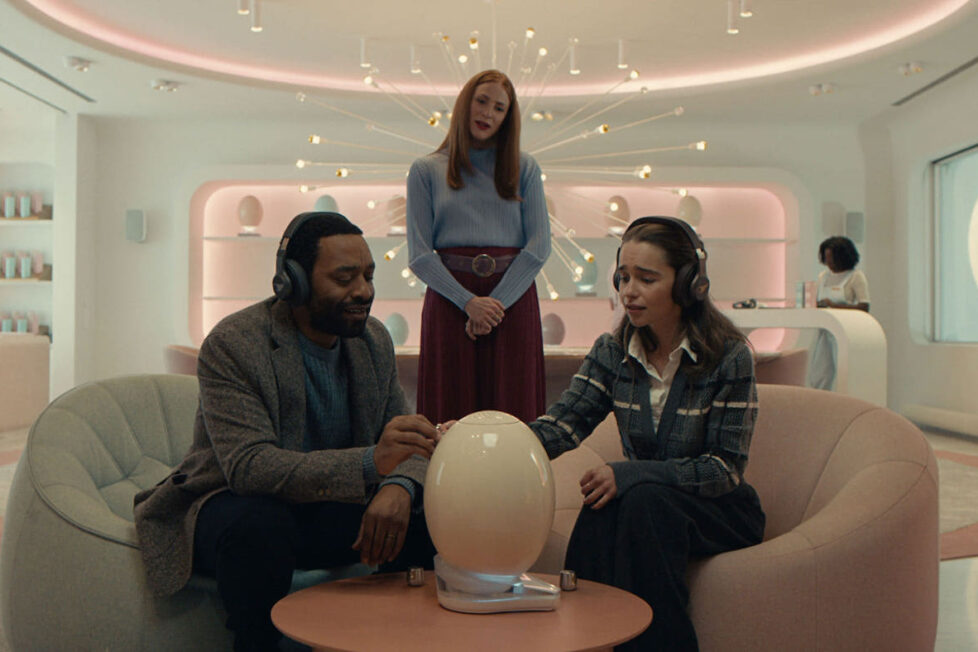
In a not-so-distant future, a tech giant offers couples the opportunity to share their pregnancies via detachable artificial wombs or pods...


Rachel (Emilia Clarke) and Alvy (Chiwetel Ejiofor) wake up in a sleekly minimalist late-21st-century apartment. This New York couple’s world is similar enough to our own, only with technological advancements such as lasers making toast and an all-seeing, all-knowing A.I assistant that prepares their meals, chooses their clothing, monitors their “bliss index”, and reminds Rachel to get some outside time
Rachel works at a company which creates and markets such A.I assistants, whereas her partner Alvy is a self-employed botanist and technophobe. They’re polar opposites in all aspects of their lives, as Rachel’s upwardly mobile at a forward-thinking tech company, while Alvy is content to potter around a greenhouse in old sweaters.
The future society they live in has a pervasive distrust of nature. Alvy’s students are reluctant to eat a fig grown naturally on a tree because it hasn’t been fabricated using a 3D printer. Ordinary people enjoy “nature” by hanging out at fresh air bars with oxygen masks hooked up to terrariums, and relaxation commonly involves watching videos in tree pods surrounded by artificial greenery.
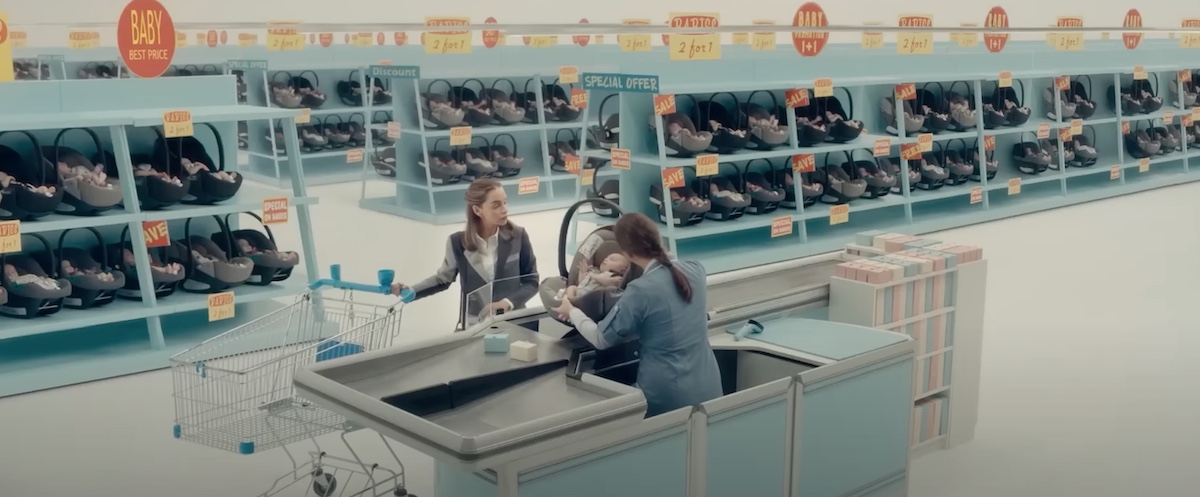
This future otherwise seems progressive and idyllic until Rachel is offered a promotion. Her boss is concerned she may want a child because it could affect her decision-making skills. One of the working perks offered to Rachel is financial assistance and fast-tracking her through the impossibly long waiting list at the Womb Centre. This cutting-edge service takes surrogacy to a new level, developing babies from fertilisation to birth inside synthetic egg-shaped pods. Rachel’s been on the list, but she’s clearly in two minds about the process.
The Founder (Jean-Marc Barr) of the Womb Centre’s umbrella company Pegazus justifies their business practises on declining birth rates and women’s desire to have long and fulfilling careers. But Pegazus don’t just fund out-of-body fertilisations, they also manage education ever since the government stopped. There’s a wonderful malevolence to Barr’s Founder character because his perspective feels so plausible future in our current climate.
Pegazus babies are kept in little pods to grow, stimulated by music, podcasts, literature, and sound therapy, in addition to having their palates sensitised to various food types. It all sounds great, but Rachel knows Alvy will favour the natural way of achieving parenthood.
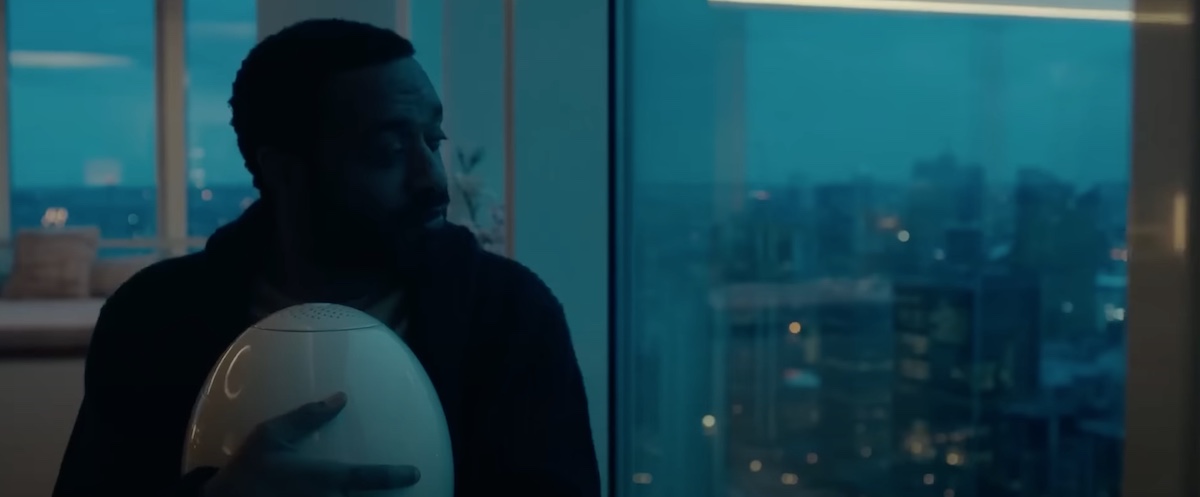
We also get an insight into Rachel’s psyche through her conversations with an A.I therapist, presented as a giant eye in a circle of flowers. Her artificial therapist asks why things achieved by technology are any less natural than those achieved by the human body. Yes, The Pod Generation lays its questions out that directly, with no subtlety or hidden messages to discover for yourself.
The Pod Generation totally loses momentum in the final act once Rachel and Alvy start to question the process of having their child, especially as the pod arrives home to be bonded with them. These scenes are intercut with Rachel’s pregnancy dreams and her longing to be connected to nature, and it’s here this sci-fi film becomes a surprisingly twee comedy-drama about the expectations of parenthood. Once that just happens to have a foetus being grown in a pod.
As Rachel becomes more concerned with their growing baby, her work productivity starts to dip and she’s warned against becoming a “distracted mother.” The Pod Generation clearly wants to make a statement about working mothers now too, but it’s too superficial to make the statement it really wants. While Rachel works, Alvy becomes inseparable from the pod and designs a harness to wear like it was his own belly. This interesting switch in attitudes of the couple feels too forced in the screenplay, however, despite Ejiofor’s light touch.
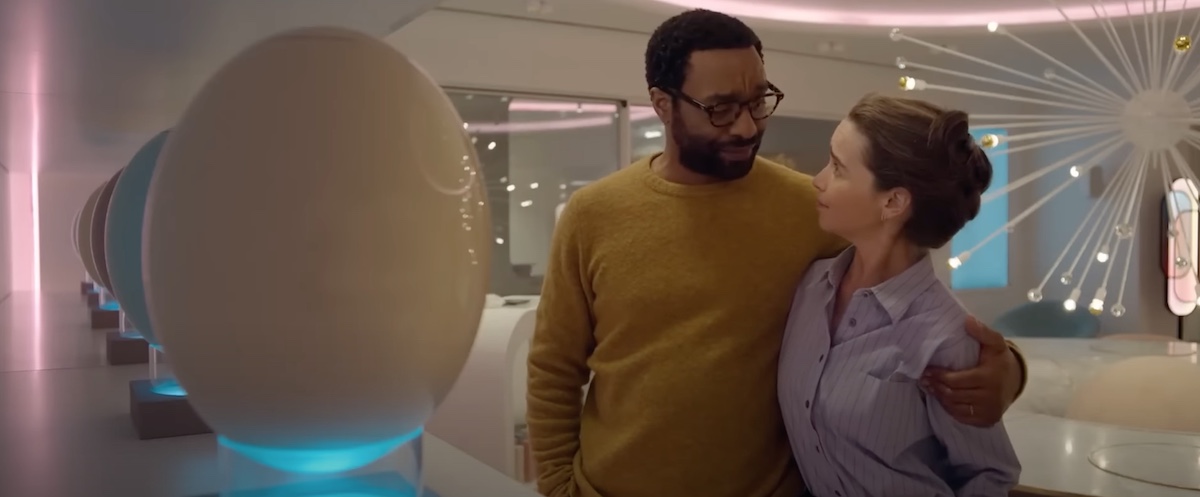
The feminist voice of Rachel’s co-worker and friend Alice (Vinette Robinson), who’s also expecting a pod baby with her partner Ben (Jelle De Beule), feels more like the direction this film should have gone in. She makes fascinating points about the realities of a world where women don’t have to fall pregnant and where men can have babies. Feminist activist groups are even seen protesting, but this is all a narrative afterthought. For a film ostensibly about women and wombs, it doesn’t even mention larger themes of maternity and womanhood.
Clarke, inexplicably cast as an American, doesn’t exhibit much chemistry with Ejifor, so their romance feels stale and awkward. Faring better is the Womb Centre’s guide Linda Wozcheck (Rosalie Craig), who plays the role with the perfect amount of professional sliminess and condescending menace.
The Pod Generation is ultimately a strange case of saying too much and not enough. Unlike Black Mirror and other futuristic satires, it shows its hand too early and fails to dive into the points it wants to make about surrogacy and women having it all. There are hints of a darker thriller which suggest a sinister ending will be arrived at, but writer-director Sophie Barthes instead opts for a more comfortable climax that doesn’t tackle this future’s overlords. Everything concludes so smoothly one’s left wondering what the point of it all was.
UK | 2023 | 109 MINUTES | COLOUR | ENGLISH

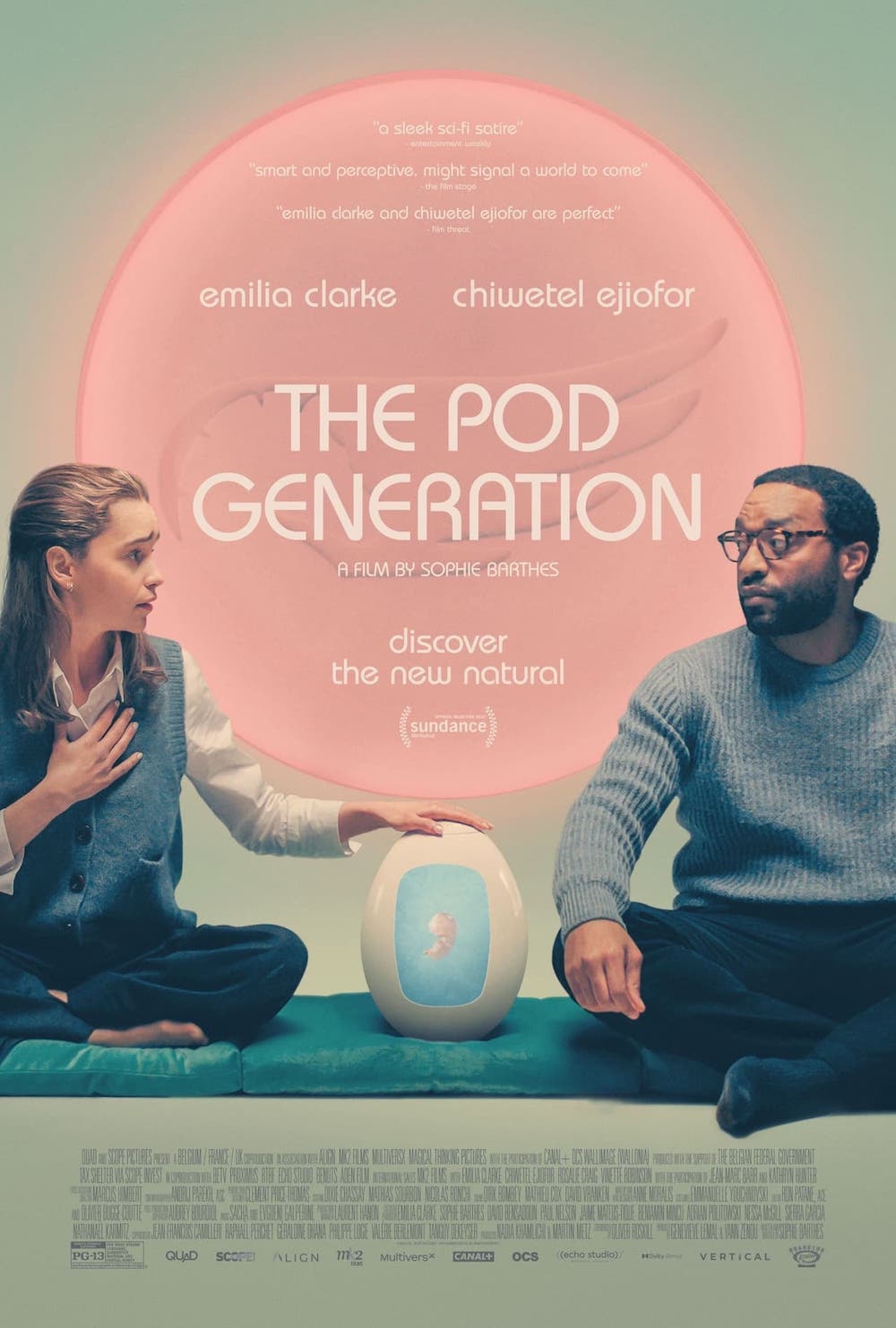
writer & director: Sophie Barthes.
starring: Emilia Clarke, Chiwetel Ejiofor, Rosalie Craig, Vinette Robinson & Jean-Marc Barr.
